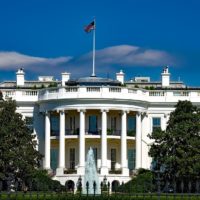US Suspends Plans to Ban TikTok and WeChat; Twitter Reports Record Q4 Revenue
by Grace Dillon on 16th Feb 2021 in News


In today's ExchangeWire news digest: the Biden administration has halted legal action that sought to ban TikTok and WeChat from the US; Twitter reports record revenue for Q4 2020, but remains wary that user growth is beginning to slow; and Google responds to the Australian senate's endorsement of the News Media Bargaining Code.
US government puts TikTok and WeChat bans on hold
US president Joe Biden has suspended legal action against short-form video platform TikTok and instant-messaging app WeChat. The action, instigated by an executive order issued by then-president Donald Trump, sought to bar both services from US cyberspace (ostensibly) in order to protect national security.
As subsidiaries of two Chinese-based tech giants, the Trump’s assault on both apps formed part of a running trend of hostility from his administration towards China. Tencent-owned WeChat, China’s most popular messaging service, has been relatively unscathed by the order, with the business reporting that the US accounts for just 2% of revenue from their over 1 billion global users.
Contrastingly, TikTok was particularly shaken by the action, which threatened to cut the platform off from 100 million of TikTok’s 800 million users. The ByteDance-owned business had agreed to divest their US operations to Oracle and Walmart in an effort to stay alive in the market, but the deal has appeared to have reached a standstill.
Now, the Biden administration has requested that the case be postponed to give them time to assess whether the apps truly pose a threat. If granted, the suspension will allow both apps to continue to operate in the country until the action is resumed. Some commentators, however, believe it’s unlikely that it’s unlikely that the case will be pursued as the US government seeks to put the Trump presidency behind them.
Twitter reports record revenues for Q4 2020
 Twitter has reported record-breaking revenues in Q4 2020. The social media giant’s revenue for the quarter hit USD $1.3bn (£933m), a 28% year-over-year rise from the same period the year prior that brought the firm’s total 2020 revenue to USD $3.7bn (£2.7bn).
Twitter has reported record-breaking revenues in Q4 2020. The social media giant’s revenue for the quarter hit USD $1.3bn (£933m), a 28% year-over-year rise from the same period the year prior that brought the firm’s total 2020 revenue to USD $3.7bn (£2.7bn).
According to Twitter’s chief financial officer, Ned Segal, the analyst-beating result was boosted in part by the use of new advertising formats on the platform. The firm saw advertising revenue leap 31% YOY to USD $1.2bn (£861.2m) over the course of the year.
The firm also saw a 9% rise in revenues from data licensing and other streams, which grew to USD $134m (£96.2m) over the period. Twitter is now believed to be building on this growth by expanding into the newsletter and podcast spaces, having purchased newsletter service Revue and podcasting app Breaker last month.
The positive results came as a surprise to some, who expected that the backlash Twitter received for failing to clamp down on misinformation and hate speech would have a detrimental impact on the platform’s coffers.
Yet whilst revenue has remained strong, growth in monetisable daily active users (MDAU) fell short of analyst estimated for the San-Francisco-based giant. In a letter to shareholders, the firm warned that the rate of MDAU would continue to slow.
Google responds the Australian senate’s approval of ACCC Code
 Google will continue to fight against the ratification of the News Media Bargaining Code in its current form. The tech giant made the announcement in response to the Australian senate economics committee’s endorsement of the legislation, the latest and most significant development in what has been a long-running battle between lawmakers and the search leader.
Google will continue to fight against the ratification of the News Media Bargaining Code in its current form. The tech giant made the announcement in response to the Australian senate economics committee’s endorsement of the legislation, the latest and most significant development in what has been a long-running battle between lawmakers and the search leader.
In a statement, Google Australia’s director of government affairs and public policy, Lucinda Longcroft, said that the firm “remain committed to a workable code”, maintaining that the tech giant objects only to “specific aspects of the code” as opposed to the legislation itself. The use of a third-party arbitrator to negotiate deals between digital platforms and the publishers has proved the most contentious part of the proposed bill, with Google and fellow tech giant Facebook arguing that the feature is anticompetitive.
The Alphabet-owned tech giant is now arguing that their own News Showcase initiative, which was launched in Australia earlier this month and involves Google paying licensing fees to media companies in exchange for their content, should be considered before the Code can be made law.
“We’ve proposed reasonable amendments, including fair arbitration and that the code apply to News Showcase, which is already paying publishers and supporting journalism in Australia, the UK and around the world,” said Longcroft. “We look forward to engaging with policymakers through the parliamentary process to address our concerns and achieve a code that works for everyone – publishers, digital platforms, and Australian businesses and users.”
AustraliaGoogleRevenueTwitter / XUS








Follow ExchangeWire